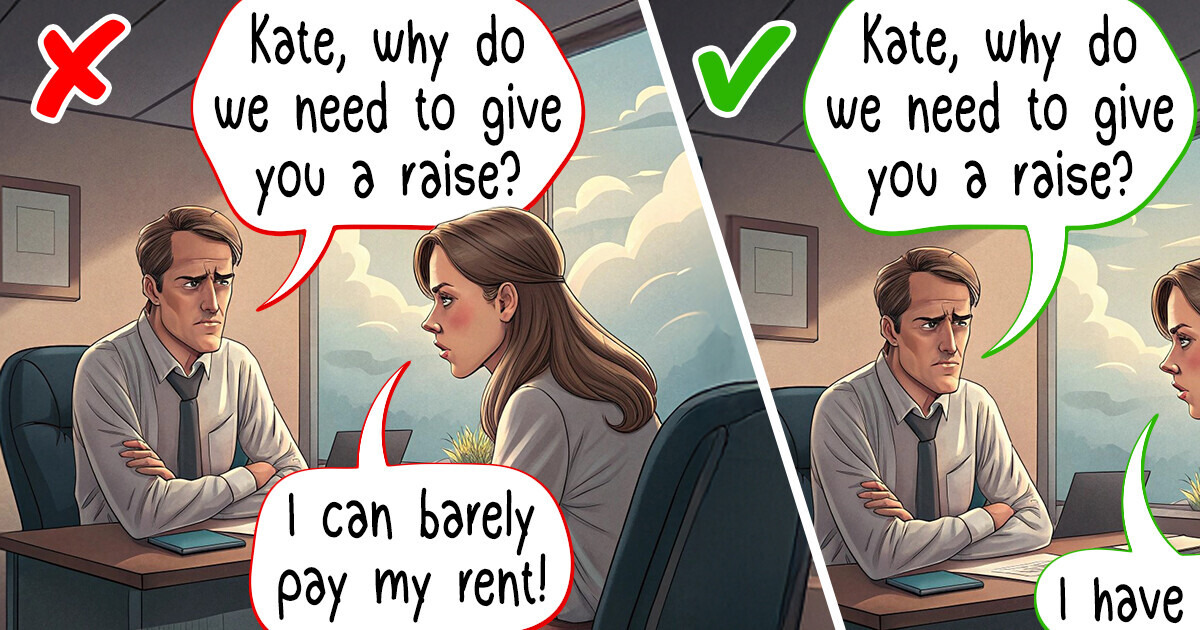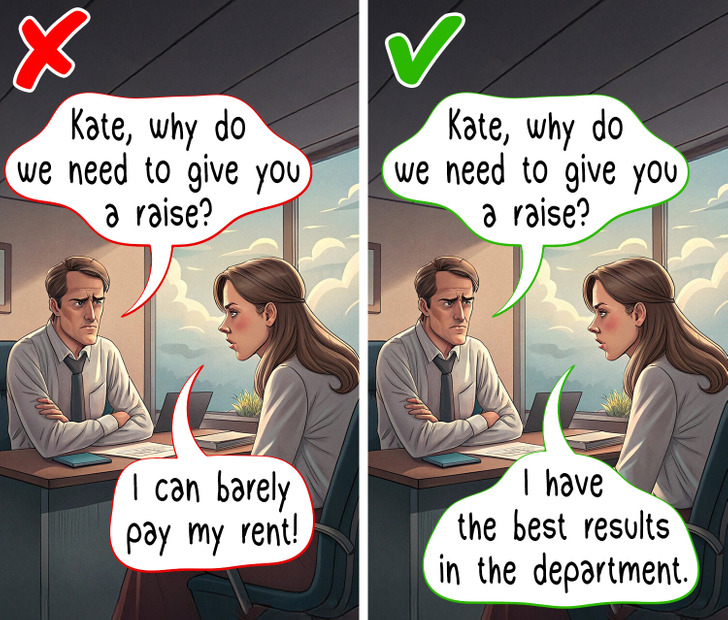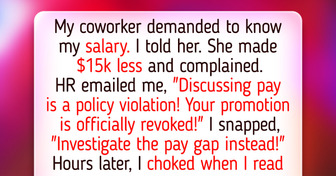12 Cringe-Worthy Job Interviews That Went from Bad to Worse


For many people, talking to their bosses about a pay raise can be a real challenge. Ideally, management itself should reward employees if those do a great job, but this practice is not so common in companies. We’ve put together some tips to help you talk to your boss about a salary increase in a way that keeps everyone happy.
Many people are embarrassed to talk to their employer about a pay raise. Some people can’t find the right time, others are not sure if they deserve a bigger salary, and some are afraid of being seen as greedy. As a result, shy employees work years without getting a raise, feeling unappreciated and disappointed.
But in some companies, no one will give a raise until the employee talks about it. And talking about a pay raise can’t shock the boss, unless the employee is asking for a completely outrageous amount. Therefore, it’s worth doing a little research in advance and finding out the average level of salary offered to the workers with experience similar to yours, as well as the financial possibilities of your company.
In some companies, it is customary to increase salaries after the end of the financial year, in others it is timed to coincide with the date of hire. If you’re new to the firm and don’t know when salary increases are usually given, it’s worth talking to more experienced colleagues and approaching management with the request a couple of months before the expected date. Otherwise, there is a good chance that all the funds will already be distributed, and you simply won’t be able to get your salary raised.
It is desirable to study the financial condition of the company. Lack of the usual bonuses and reduced office expenses can be worrying signs. If the company is struggling to stay afloat, you should not expect a pay raise.
If you ask your boss for a pay raise when they have just successfully completed a complex project, received a bonus or recently returned from holiday, the chances of a positive response increase. You should not raise this issue if the manager has some problems and looks nervous and irritated — in this case, you most likely won’t like their decision.
Not all companies conduct annual performance audits of their employees. Therefore, if you have done an excellent job, achieved certain successes, and a year has passed since the last pay raise or your employment, it’s the right time to talk about it.
You should not do it earlier — your bosses may think that you evaluate the situation inadequately. However, if your workload has increased significantly from what was agreed in the beginning, it’s worth discussing a reasonable compensation.

It’s better not to surprise your boss with an unexpected question about a pay raise — their first reaction is likely to be a firm refusal. Besides, if you decide to discuss this question somewhere in the corridor or in the office kitchen, your boss is also probably won’t like it. Ideally, you should arrange a meeting in advance, explaining exactly what will be discussed. This way, the manager will have time to prepare for the discussion.
And to further increase your chances of a positive response, suggest scheduling the meeting for Wednesday and choose the middle of the day. This is usually the time when a person is fully geared up for work after the weekend, but not yet too exhausted. Do not bring up the subject of a raise outside of working hours — it may seem unprofessional.

You don’t have to make a detailed presentation of several pages, but it’s worth writing down the main points about your successes and achievements at work. And you don’t have to mention only completed projects and rely only on figures — you can also talk about a successfully resolved conflict between 2 colleagues, for example. Skills like this are also appreciated.
It’s better to approach this meeting as a job interview. And even if the company doesn’t have a strict dress code, it’s worth choosing a business outfit instead of casual clothes. This will once again show that you’re serious and have prepared thoroughly for the conversation.

To avoid nervousness and confusion during the meeting, it’s worth rehearsing your speech in advance and practice with someone close to you. Firstly, it will help you feel more confident. Secondly, a friend will be able to point out weaknesses and prepare you to answer tricky questions. Ideally, your presentation should only take a couple of minutes and should include a proposal for a salary increase, as well as a brief justification for this.
You don’t want to mention personal reasons in the conversation. If your salary is not enough to pay off a loan, or you have unexpected financial difficulties, your boss should not be concerned. A salary increase is not a favor or a gift, but one of the ways for the management to show that they value your contribution to the company. It helps retain valuable employees so they don’t leave the company.
It’s likely that the management will be primarily interested in how big a raise you are expecting, so it’s worth deciding on a specific amount or percentage in advance. The standard increase is about 3% of salary, but you can ask for a larger amount initially. If your boss expresses doubts, it’s worth explaining why you insist on this amount, as well as clarifying what makes them uncomfortable about your request and how the situation can be fixed.

When talking, try not to use phrases like, “I think,” “I feel,” “maybe.” These expressions often give your manager the impression that you are not too sure of your merits and don’t really expect an increase in salary. And if the boss can avoid additional spending, they will certainly take advantage of it.
Nor should you tell about more interesting offers from other companies. Some bosses may perceive this as blackmail. And although in some cases this tactic may work, in the future the employee will be treated with suspicion. They may even dismiss the employee to avoid setting a precedent.
Even if your efforts didn’t bring the desired result, you should not get upset and take offense. It’s better to calmly thank your boss for the meeting, and offer to discuss the matter in 4–5 months. And immediately ask the boss about what steps you can take to get a salary increase as a result, and on the basis of this make a plan.
If the management is not planning to raise your salary at all in the near future for their own reasons, you will know about it in advance and firsthand. And you’ll be able to take further steps. For example, look for a new job with a higher salary.
And here are proven real-life tricks that can help you rock your job interview.











